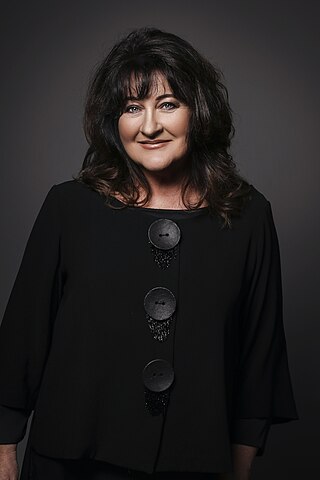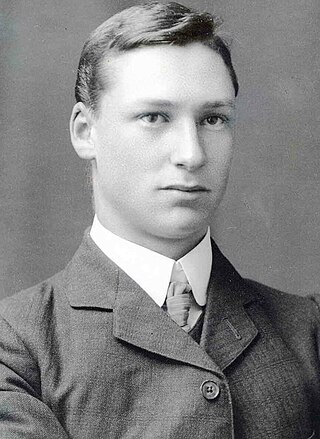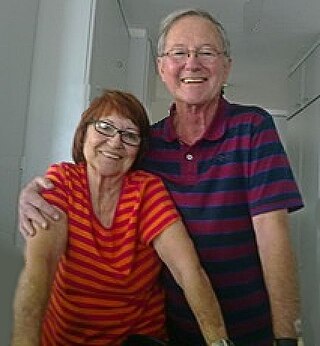
Hendrik Frensch Verwoerd, also known as H. F. Verwoerd, was a South African politician, scholar, and newspaper editor who was Prime Minister of South Africa and is commonly regarded as the architect of apartheid and nicknamed the "father of apartheid". Verwoerd played a significant role in socially engineering apartheid, the country's system of institutionalized racial segregation and white supremacy, and implementing its policies, as Minister of Native Affairs (1950–1958) and then as prime minister (1958–1966). Furthermore, Verwoerd played a vital role in helping the far-right National Party come to power in 1948, serving as their political strategist and propagandist, becoming party leader upon his premiership. He was the Union of South Africa's last prime minister, from 1958 to 1961, when he proclaimed the founding of the Republic of South Africa, remaining its prime minister until his assassination in 1966.

Steve Hofmeyr is a South African singer, songwriter, writer, actor and former TV presenter.
The following lists events that happened during 1965 in South Africa.

A referendum on becoming a republic was held in South Africa on 5 October 1960. The Afrikaner-dominated right-wing National Party, which had come to power in 1948, was avowedly republican and regarded the position of Queen Elizabeth II as the South African monarch as a relic of British imperialism. The National Party government subsequently organised the referendum on whether the then Union of South Africa should become a republic. The vote, which was restricted to whites—the first such national election in the union—was narrowly approved by 52.29% of the voters. The Republic of South Africa was constituted on 31 May 1961.
Die Burger is a daily Afrikaans-language newspaper, published by Naspers. By 2008, it had a circulation of 91,665 in the Western and Eastern Cape Provinces of South Africa. Along with Beeld and Volksblad, it is one of three broadsheet dailies in the Media24 stable.

Laurika Rauch, is a South African singer who performs in both Afrikaans and English. She had a hit single in 1979 with Kinders van die Wind, written by Koos du Plessis. The song featured prominently in the Afrikaans television series "Phoenix & Kie" in the late seventies.

Afrikaner nationalism is a nationalistic political ideology created by Afrikaners residing in Southern Africa during the Victorian era. The ideology was developed in response to the significant events in Afrikaner history such as the Great Trek, the First and Second Boer Wars and the resulting anti-British sentiment that developed among Afrikaners and opposition to South Africa's entry into World War I.

YOU is a South African family magazine that is aimed at demographically diverse South African English-speaking readers of different ethnicities with coverage on current events and "interesting people".
Dewald Louw is the winner of the first season of The Afrikaans KykNET Idols in South Africa.

The Volksblad is an Afrikaans-language daily newspaper published in Bloemfontein, South Africa, and distributed in the Free State and Northern Cape provinces, where it is the largest Afrikaans daily. It is South Africa's oldest Afrikaans The paper is owned by Media24.
Saktyd is a South African reality television show, which aired on the Afrikaans television channel kykNET on DStv between 17 July 2012 and 9 October 2012. In Afrikaans, the word ʽsaktydʼ refers to the time that a magazine or newspaper is sent to a printer to be printed.
Amor Vittone is a South African singer.
The Media24 Books Literary Awards are a group of five South African literary prizes awarded annually by Media24, the print-media arm of the South African media company Naspers. They are open to authors whose books are published within the Media24 Books stable, which includes NB Publishers, Jonathan Ball Publishers, LuxVerbi-BM, NVA, and Van Schaik Publishers. Each award is worth R35 000. The awards comprise:

Naspers Limited is a South African multinational internet, technology and multimedia holding company headquartered in Cape Town, with interests in online retail, publishing and venture capital investment. Naspers' principal shareholder is its Dutch listed investment subsidiary Prosus, which owns approximately 49% of its parent as part of a cross ownership structure.
Arno Jordaan born in Port Elizabeth is a South African pop singer singing in Afrikaans.

Henry Allan Fagan, QC was the Chief Justice of South Africa from 1957 to 1959 and previously a Member of Parliament and the Minister of Native Affairs in J. B. M. Hertzog's government. Fagan had been an early supporter of the Afrikaans language movement and a noted Afrikaans playwright and novelist. Though he was a significant figure in the rise of Afrikaner nationalism and a long-term member of the Broederbond, he later became an important opponent of Hendrik Verwoerd's National Party and is best known for the report of the Fagan Commission, whose relatively liberal approach to racial integration amounted to the Smuts government's last, doomed stand against the policy of apartheid.

Dirk Daniël Hammann, known as Niel Hammann, is a retired South African senior journalist. He was Editor-in-Chief of the Afrikaans weekly family magazine Huisgenoot, as well as its sister publication, You, which was published in English.
Annelisa Dora Deborah Weiland is a South African actress and writer. She is known for her roles in the films Meerkat Maantuig, Die Sonvreter, Wild Maneuvres as well as her long-running role on the SABC2 soap opera 7de Laan.
Blyde Smit is a South African actress and production designer. She is best known for her roles in the series Dead Places, The Construct and 7de Laan.
Gretchen Ramsden is a South African actress. She is best known for her roles in Arendsvlei and Afgrond.











